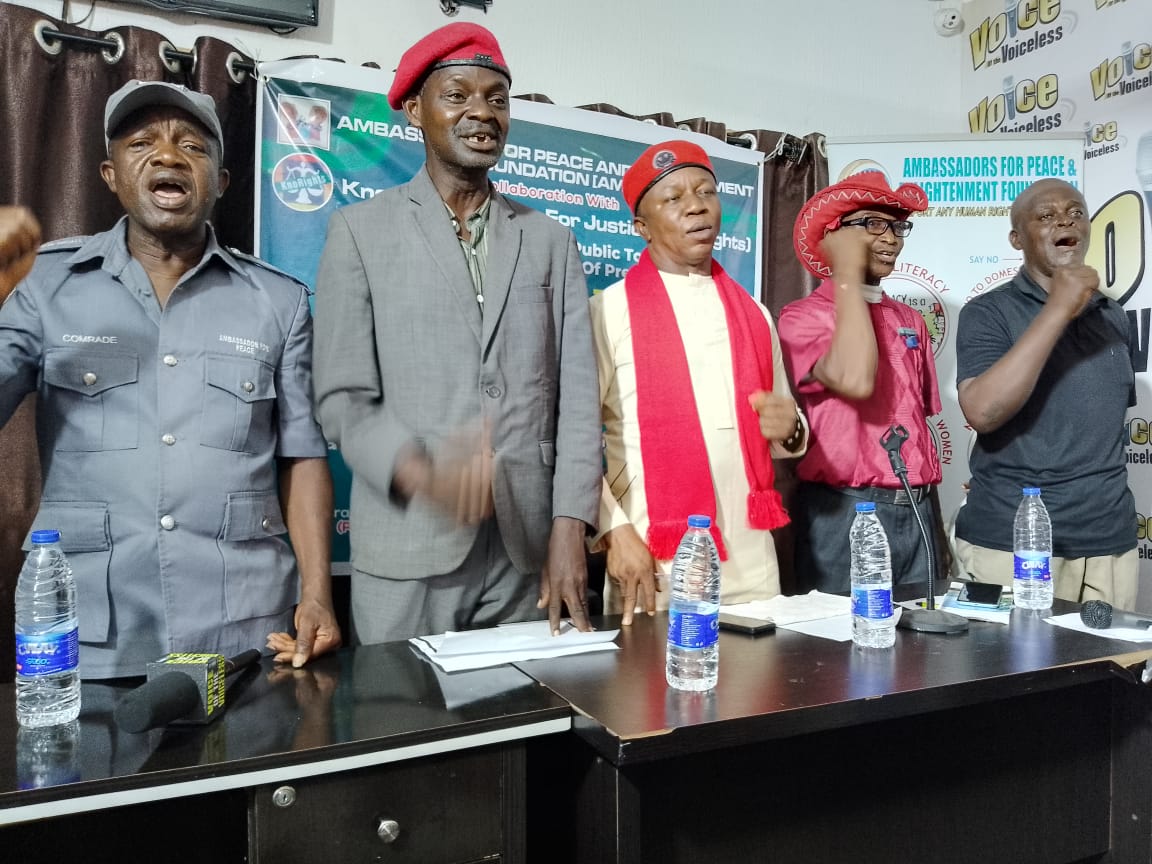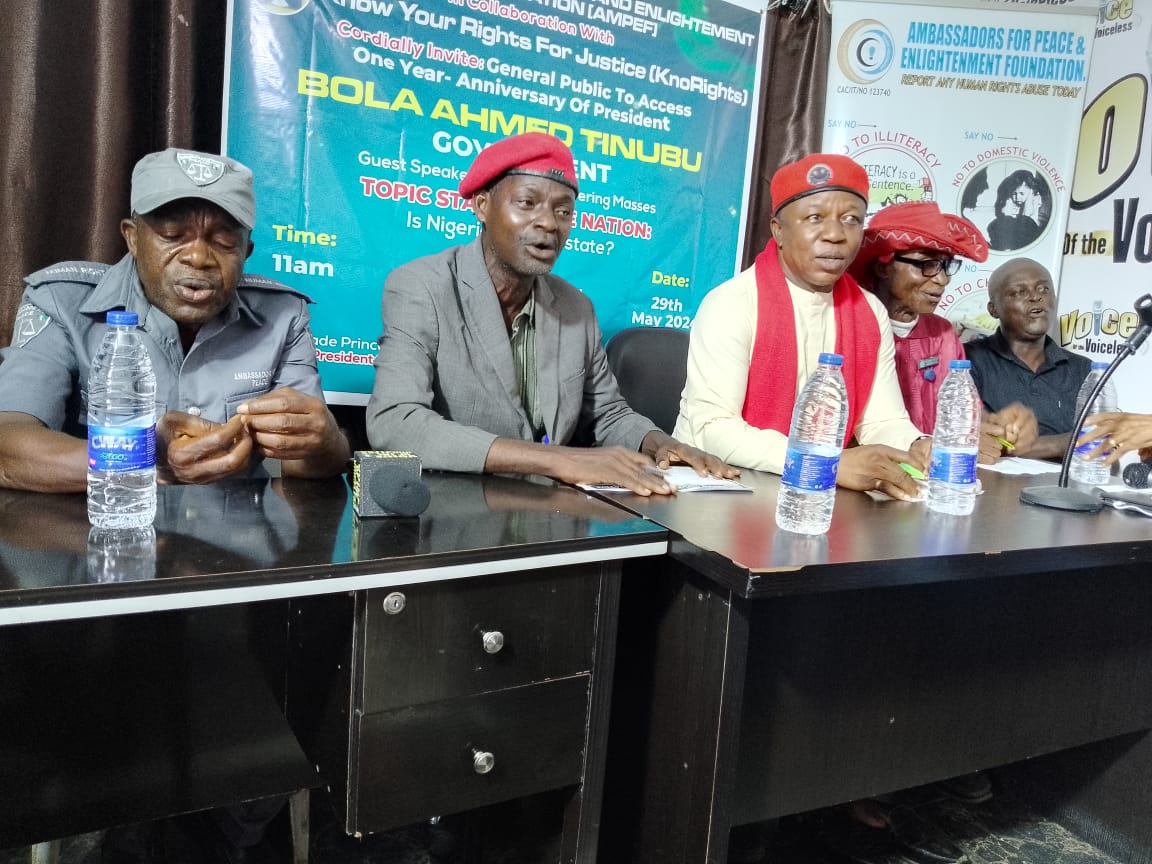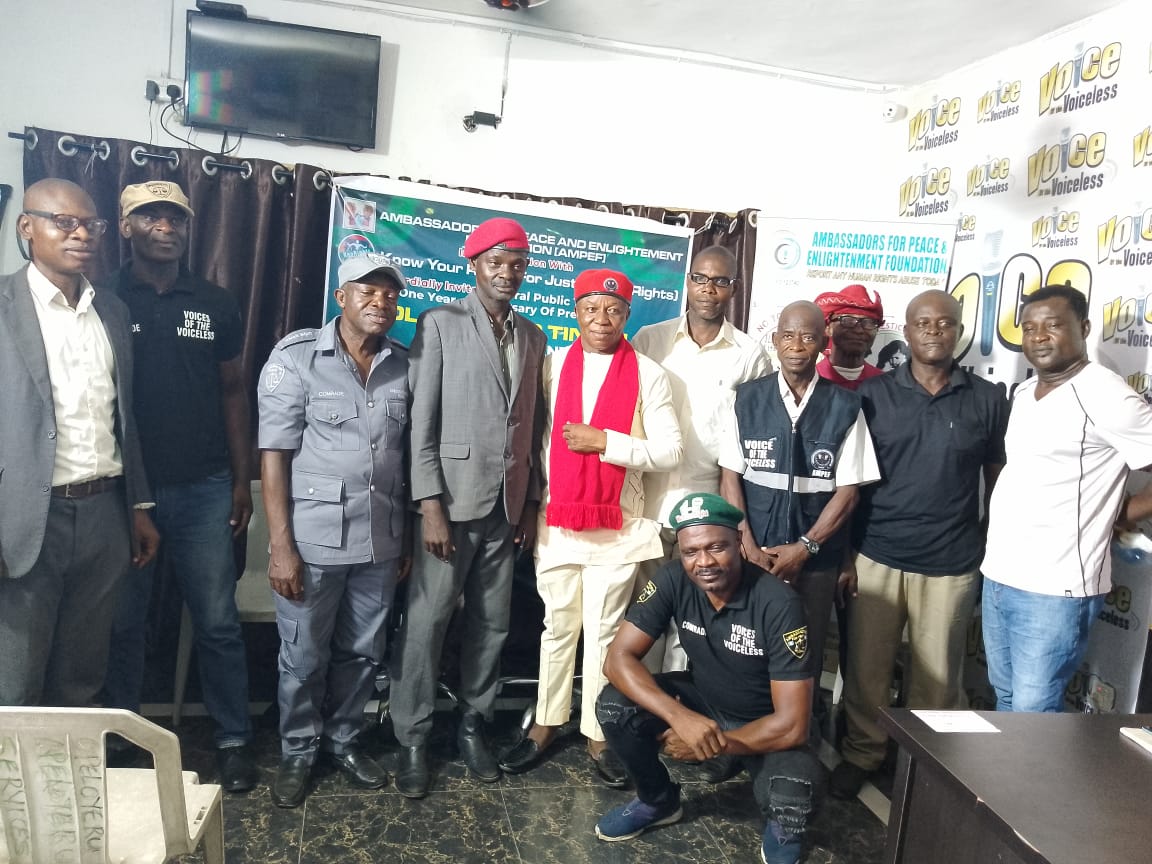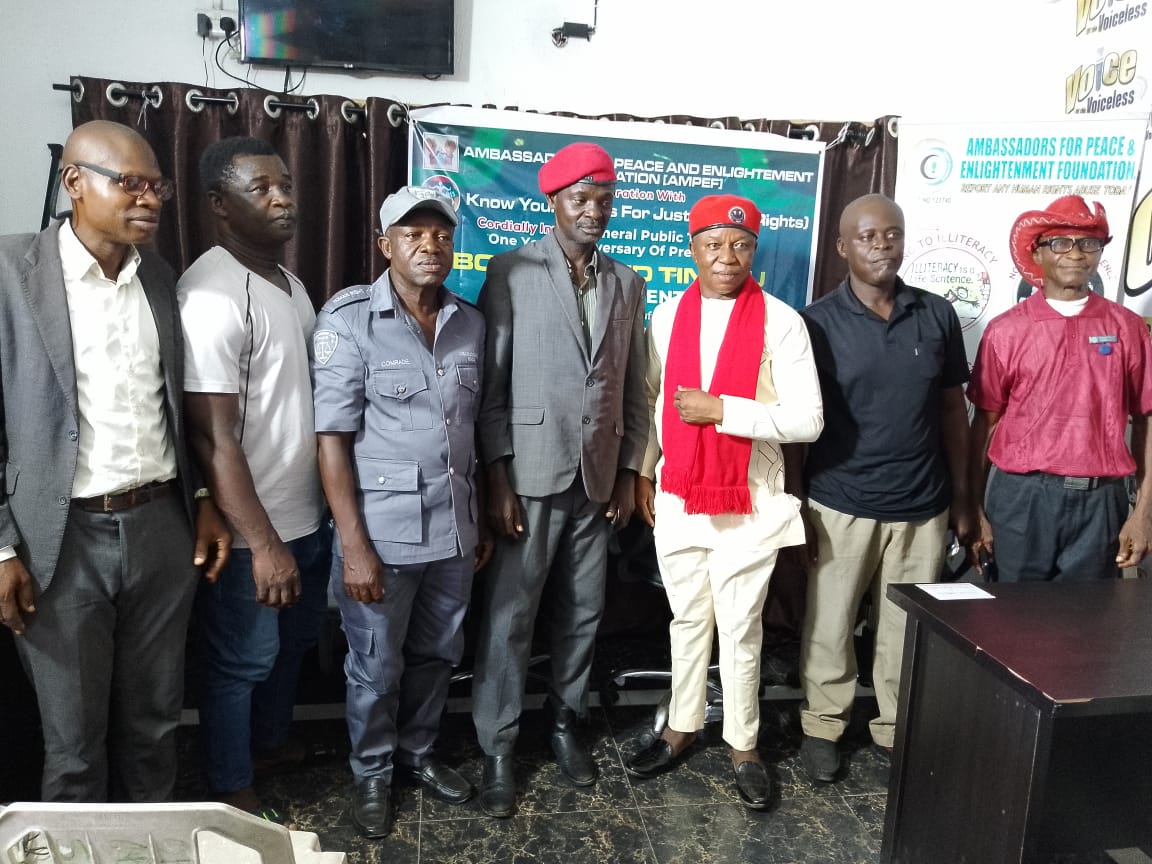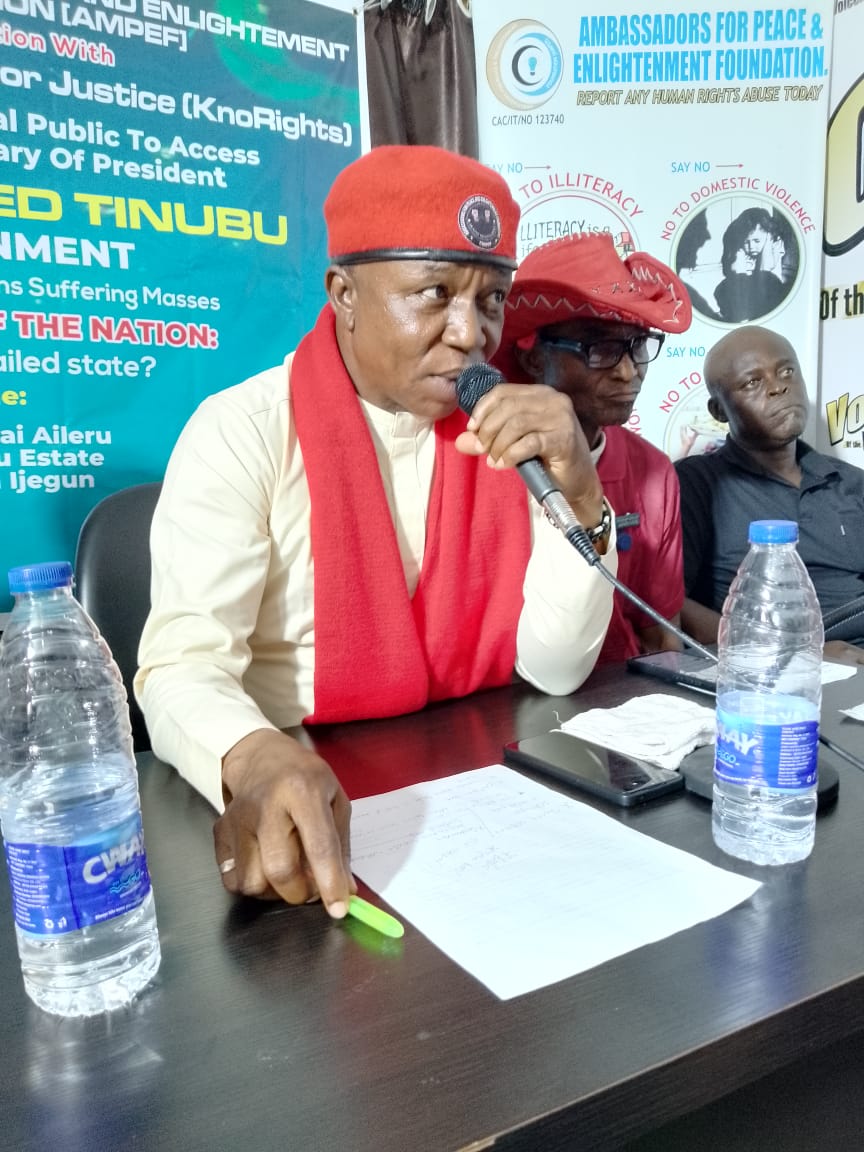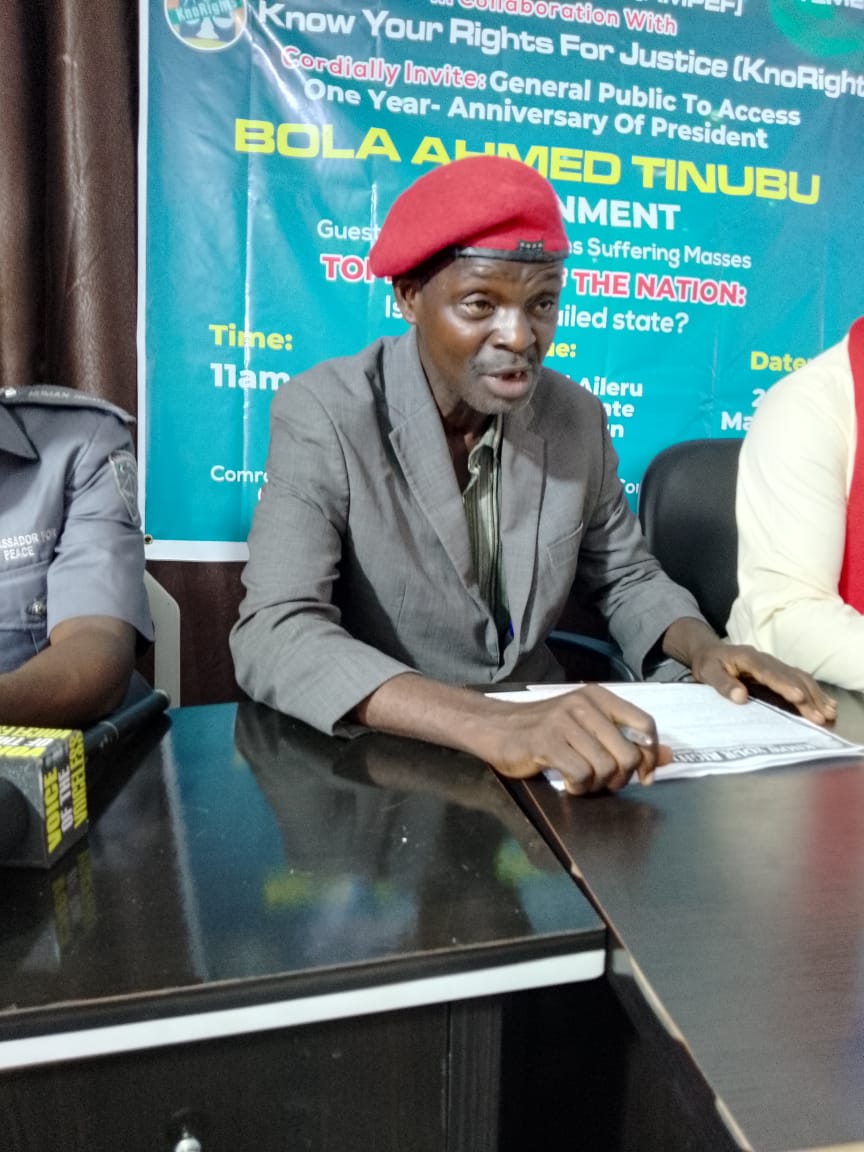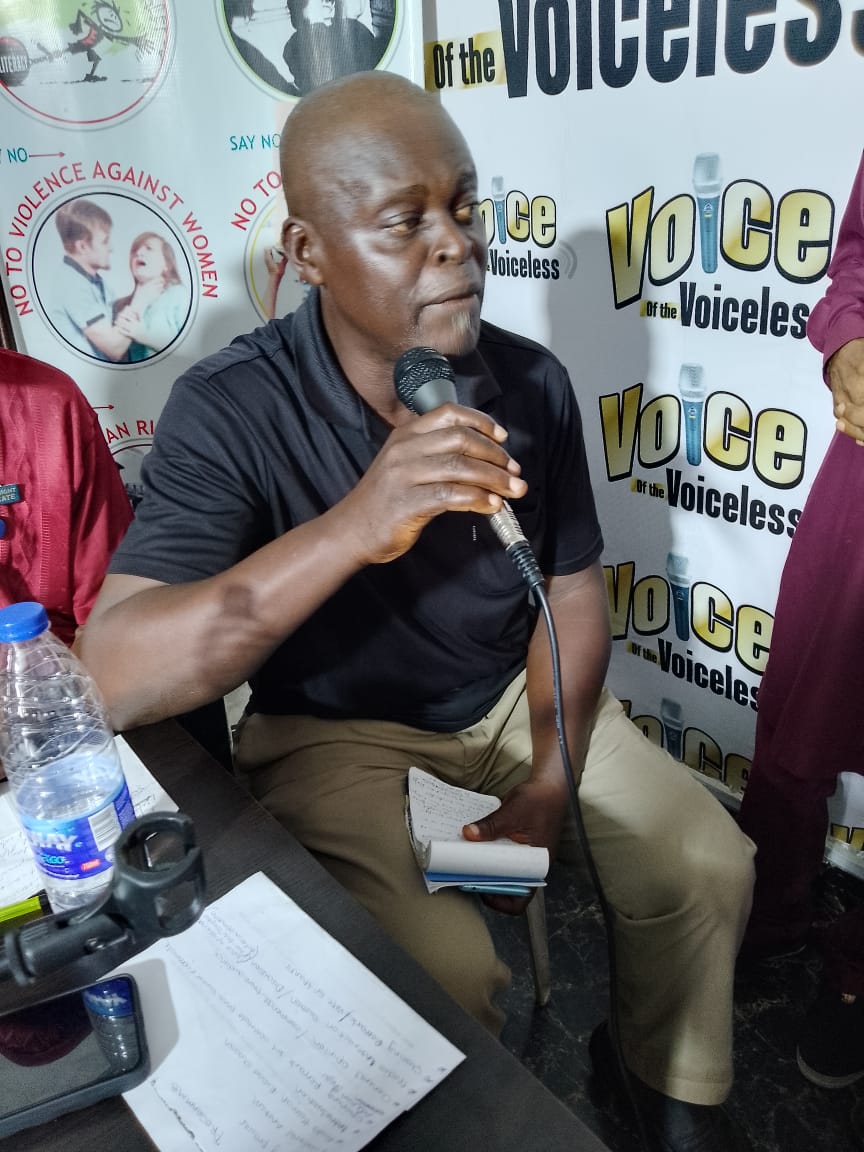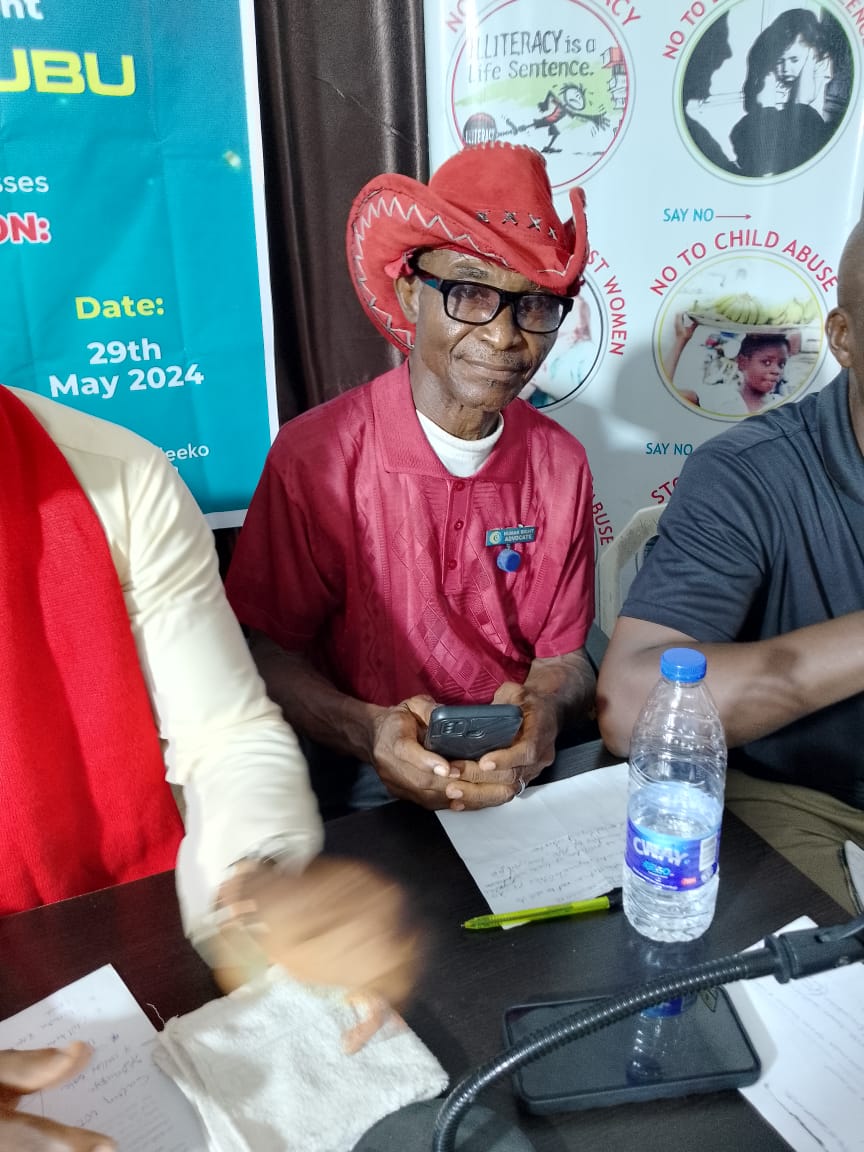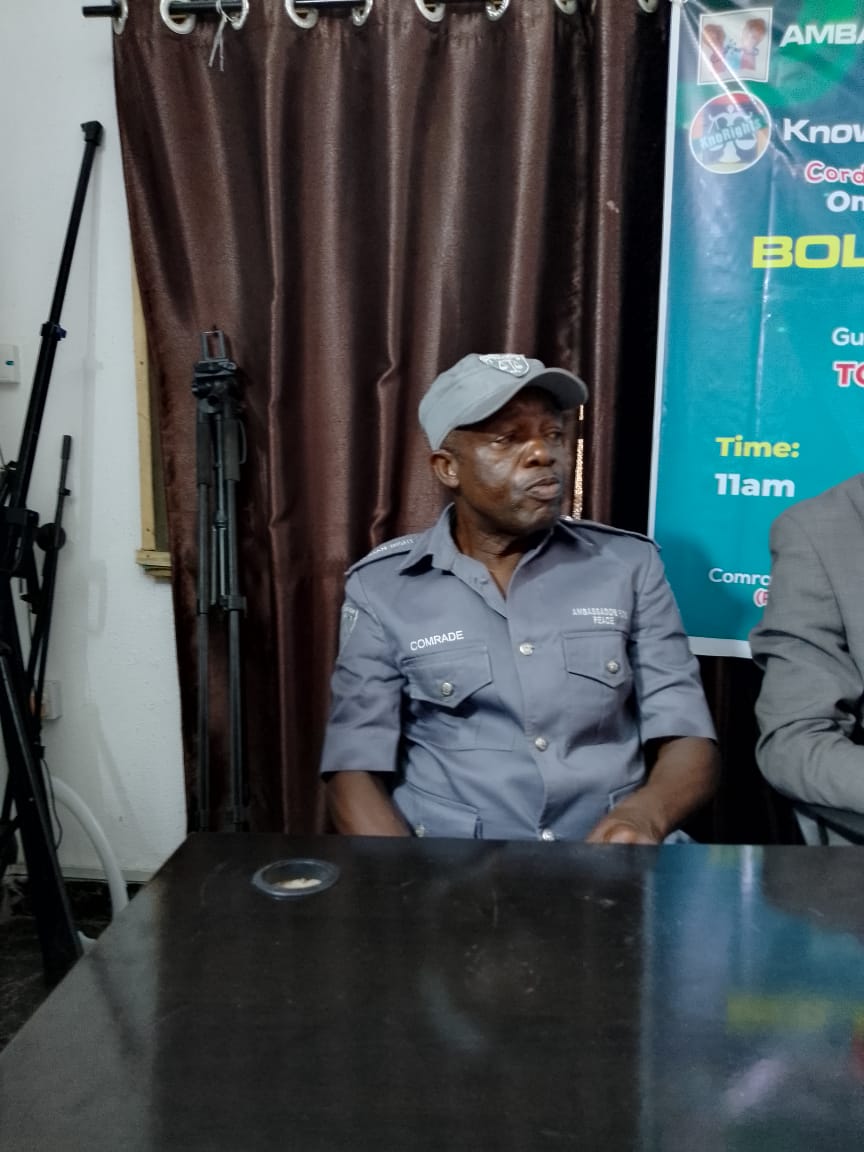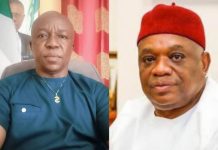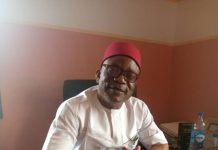🌿 Ruzu Non-Alcoholic Herbal Bitters
Ruzu Non-Alcoholic Herbal Bitters is a natural health supplement specially formulated to:
- ✅ Promote general wellness
- ✅ Detoxify the body
- ✅ Support the treatment of various ailments
Made from a powerful blend of 100% organic and medicinal herbs, Ruzu is completely alcohol-free, making it ideal for:
- 👪 All age groups
- 🌱 Health-conscious individuals
- 🌿 Anyone seeking non-alcoholic herbal remedies
Whether you're looking to boost your vitality, cleanse your system, or support healing the natural way, Ruzu Bitters offers a trusted herbal solution.
State of the Nation: Human Rights Group Evaluates President Tinubu’s One Year in Office
By Onome Naomi
Ambassadors of Peace and Enlightenment Foundation (AMPEF), in collaboration with Know Your Rights for Justice (KnoRights), converge to discuss the state of the nation as President Bola Ahmed Tinubu marks one year in office on Wednesday, May 29th, 2024.
The conference attended by the Human Rights Group and members of the public is centred on the theme: Is Nigeria a failed state? This was created to evaluate President Tinubu’s one year of administration since his inauguration as the 16th President of Nigeria on May 29, 2023.
The human rights contributors shed light on the causes of the overwhelming inflation and hardship inflicted on Nigerians, which they say are due to stringent policies and non-knowledgeable appointees by the president to sensitive areas of the government, leading to an outright economic downturn.
The President of AMPEF, Comrade Prince Saviour Iche, emphasised in his opening remarks the root cause of Nigeria’s retrogressive situation, which he says bothers on the maladministration in Tinubu’s government as well as inherited unaddressed lingering situations from previous governments.
The first speaker, Comrade Olusegun Adeeko, the president of Know Your Right for Justice (KnoRights), summarised that Nigeria is a completely failed state, says a country with no good roads, inadequate power supply, food inflation, insecurity, a surge in fuel prices, and so on, has failed her citizens. In addition, Olusegun made reference to the constitution, saying the primary focus of a government is welfare and security, and any government that fails to provide these is a failed government.
Olusegun reiterated the words of Mr. President; he said, “Tinubu, according to his words, said that if in his 4-year tenure there is no stable security, Nigerians should not vote for him in the next election. We will hold him to his words,” he noted.
The second speaker, Comrade Solomon Neye, lays emphasis on the basic salaries of workers and says it is slavery for a family to survive on N60,000 monthly salaries as proposed by the government plus the rise in cost of food, transportation, and other household bills, which include children’s school fees. Security is at its poorest; the government has embezzlers, yet the prison is for the poor man who has to struggle to survive. Nigerians must speak in one voice to end the already-heating menace engulfing the country, he added.
The third speaker, Comrade Daniel Oguine from CDHR, expressed despondency over Nigeria’s plight. He said the previous government of Muhammadu Buhari failed in his administration, and the present government followed suit by instilling further hardship on already suffering Nigerians as Tinubu prioritised his cabinet over the masses. Shettima says N15 billion is an outrageous amount budgeted to buy new cars for commissioners as well as the budget for Shettima’s new office. He also noted that old projects are abandoned while new projects spring up and will remain uncompleted as usual, leaving a burden of inheritance for the next government.
The 4th Speaker, Comrade John Ezenwan, Lagos Coordinator for AMPEF, stated that the value of the naira will remain valueless as Nigerians consume more from importation and not produce for exportation. The N60,000 minimum wage, he says, cannot sustain families and should be reviewed.
Read Also;South-East govs condemn killing of soldiers in Aba
Comrade Iche, the convener of the Congress, establishes that many human rights leaders have sold their consciences and, however, find it difficult to confront the government on sensitive, bothersome issues overriding good governance in the country. In conclusion, Iche said It is paramount to note that the solution to Nigeria’s many problems is a careful deliberation on matters arising and the proffering of effective solutions, which are:
*That all the members of Tinubu’s cabinet should be replaced with the right appointees who can make reasonable contributions to the growth of the economy.
*Appointment should be based on area of specialisation and progress monitored to ensure accountability.

